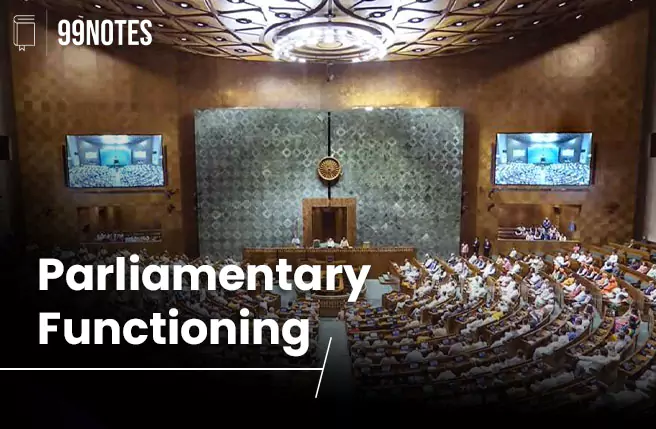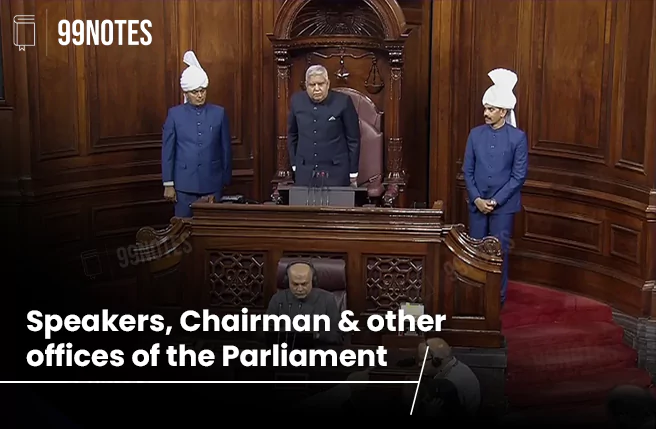Parliamentary Functioning UPSC Notes
Functions of the Parliament In order to perform its role efficiently, various mechanisms have been set up in the Constitution, and each House has been empowered to make its own rule under Article 118. Rules of communication between both houses and the Joint sitting are made by the President after consultation with the Speaker of…










